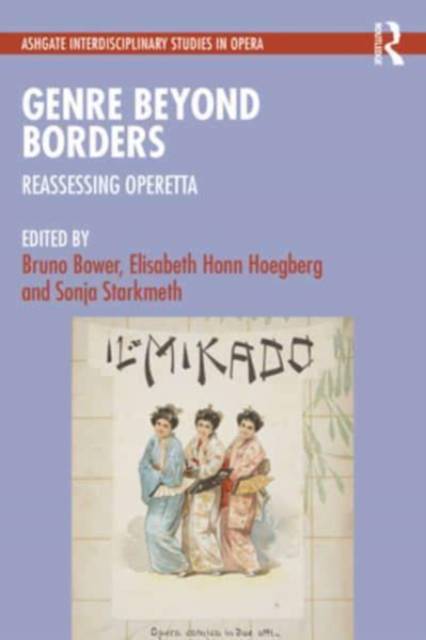
- Afhalen na 1 uur in een winkel met voorraad
- Gratis thuislevering in België vanaf € 30
- Ruim aanbod met 7 miljoen producten
- Afhalen na 1 uur in een winkel met voorraad
- Gratis thuislevering in België vanaf € 30
- Ruim aanbod met 7 miljoen producten
Genre Beyond Borders
Reassessing Operetta
Omschrijving
This book offers an innovative approach to understanding operetta, drawing attention to its malleability and resistance to boundaries. These shows have traversed (and continue to traverse) with ease the national borders which might superficially define them, or draw on features from many other genres without fundamentally changing in tone or approach. The chapters move from nineteenth-century London and Paris to twentieth-century North America, South America and Europe to present-day Australia. Some offer fresh understandings of familiar composers, such as Johann Strauss or Gilbert and Sullivan, while others examine works or composers that are less well-known. The chapter on Socialist operetta in Czechoslovakia in particular will almost certainly be a revelation to anyone from Western Europe or the US, where operetta is often understood to be a bourgeois phenomenon. As a summary of the current state of the field, this collection showcases the many possible pathways for future scholars who wish to explore it.
Specificaties
Betrokkenen
- Uitgeverij:
Inhoud
- Aantal bladzijden:
- 252
- Taal:
- Engels
- Reeks:
Eigenschappen
- Productcode (EAN):
- 9781032184258
- Verschijningsdatum:
- 18/12/2023
- Uitvoering:
- Hardcover
- Formaat:
- Genaaid
- Afmetingen:
- 156 mm x 234 mm
- Gewicht:
- 548 g

Alleen bij Standaard Boekhandel
Beoordelingen
We publiceren alleen reviews die voldoen aan de voorwaarden voor reviews. Bekijk onze voorwaarden voor reviews.










